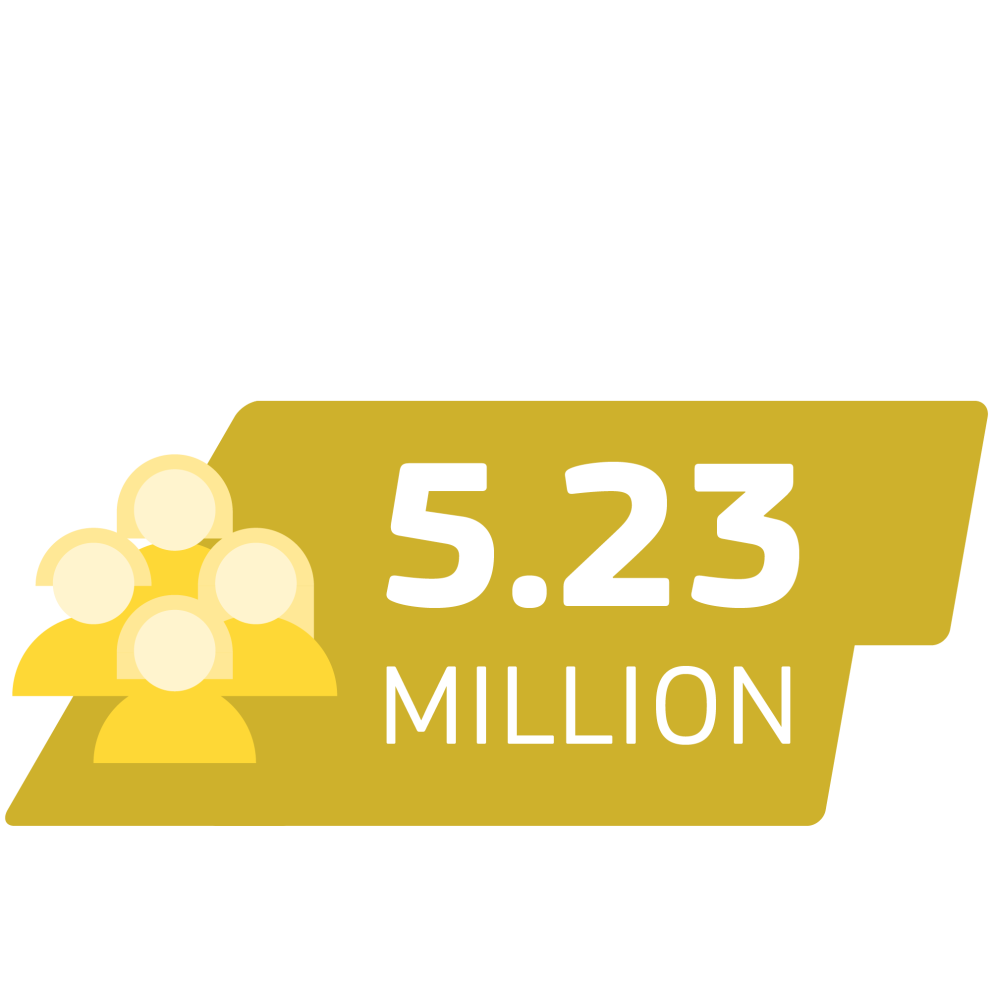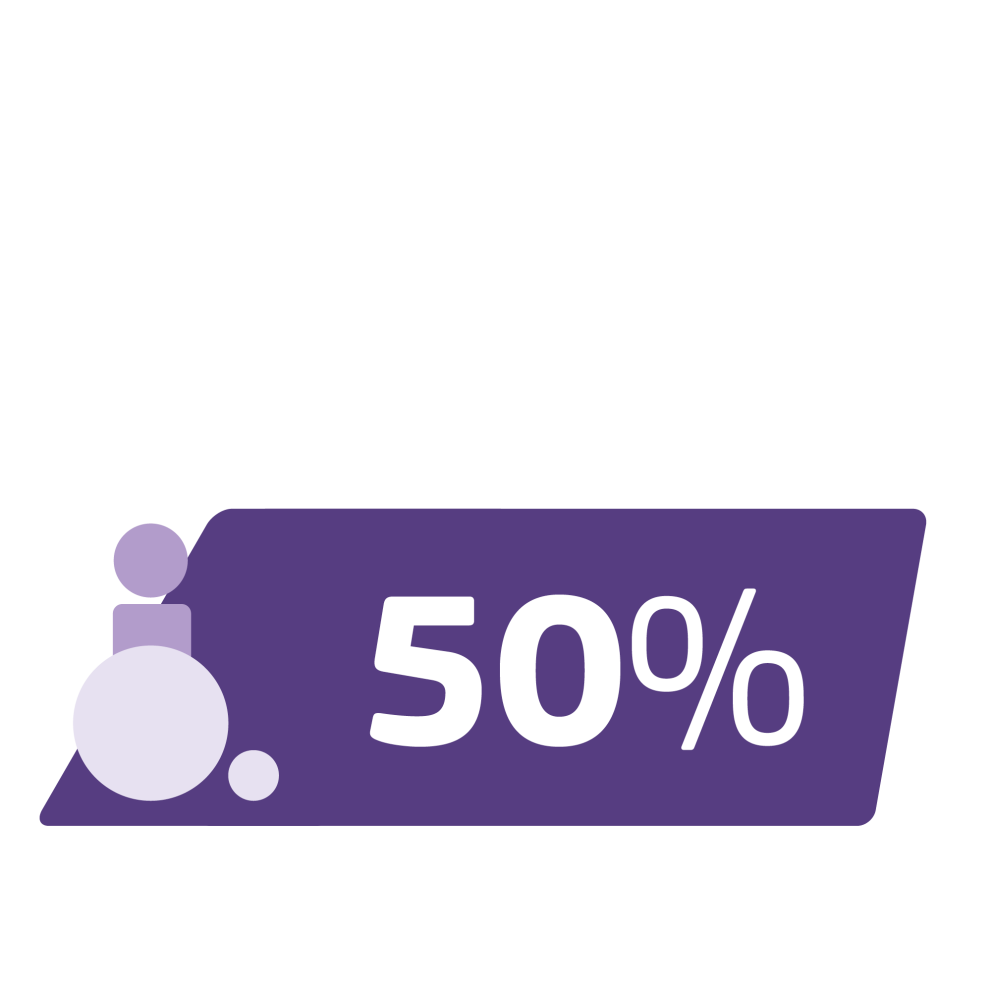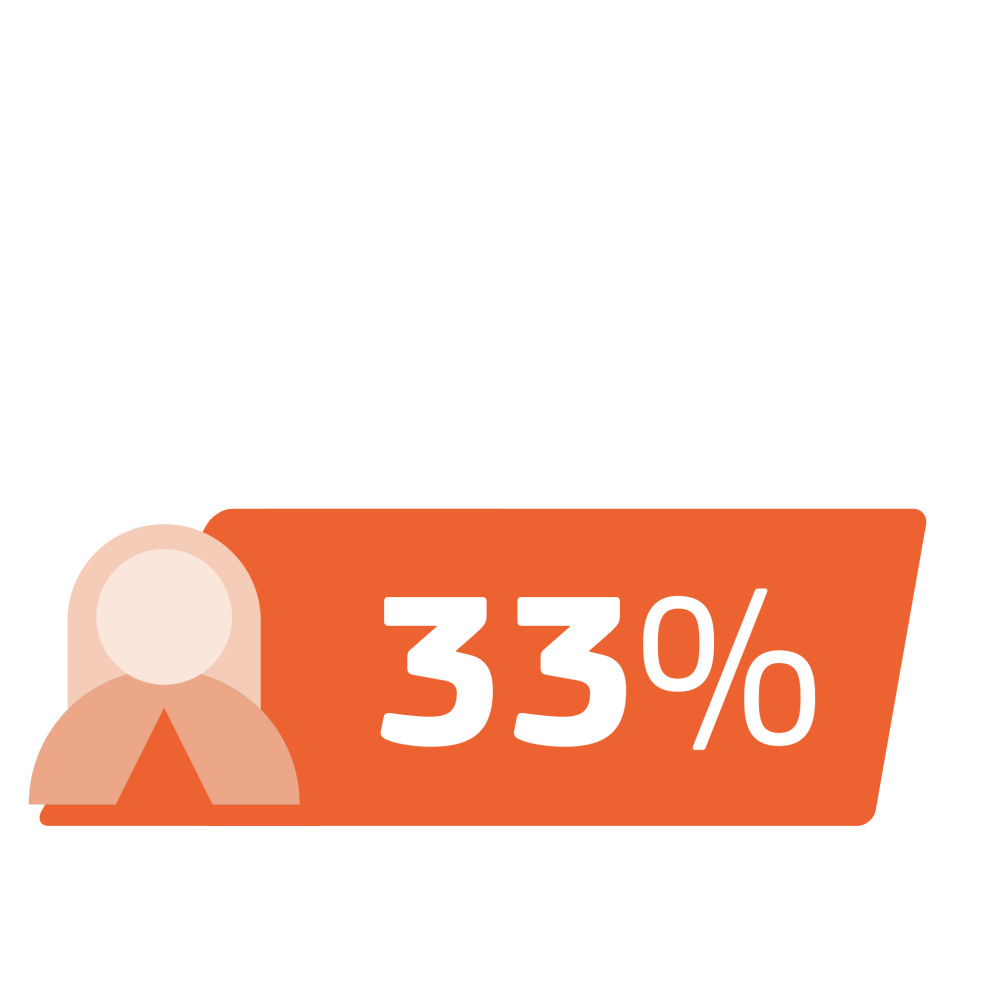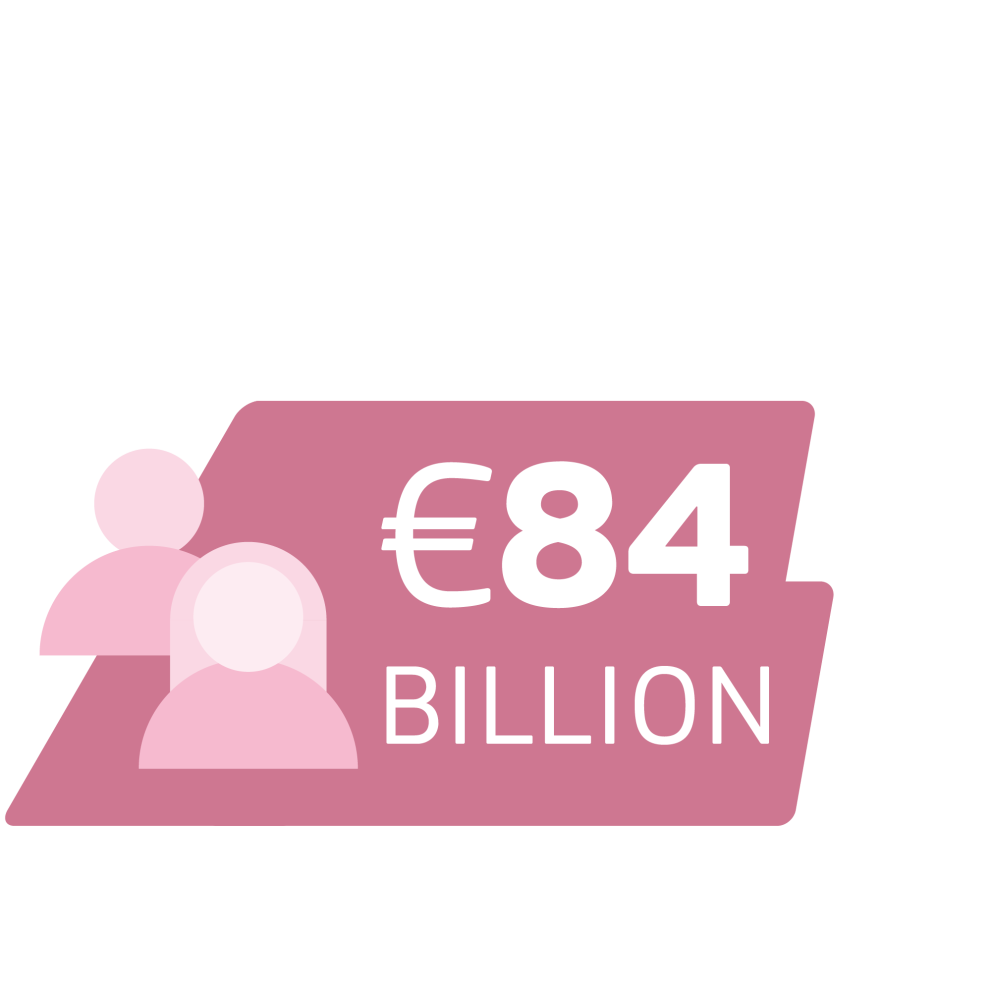The European Union was founded on the principle of equality. No matter your sex, race, colour, ethnic or social origin, genetic features, language, religion or belief, political or any other opinion, membership of a national minority, property, birth, disability, age or sexual orientation, you have the right to be treated equally when looking for a job and, once at work, in decisions around promotions, pay, and working hours.
We are here to support you and to ensure that you are treated equally. Discrimination – from your boss, colleagues, hiring managers or anyone else – has no place in the working world and we are actively working to put an end to it.
Why do we need to take action on equality in the EU?

5.23 million women in the EU feel they are being discriminated against at work

50% of persons with disabilities are employed, compared to 75% of persons without disabilities

47% of LGBTI people surveyed across Europe experienced discrimination or harassment
How are we taking action?

33% of all director posts should be occupied by women (as the under-represented gender) by the end of June 2026 according to an EU law

6 million older people benefitted from the ESF budget between 2007 and 2013

84 Billion Euros from ESF+ investments will contribute to gender equality
You shouldn’t be held back from getting a job because of what you believe, your age, your disability, your ethnicity, your gender or your sexual orientation. The EU has legislation to prevent employers from discriminating based on these factors.
- As an EU citizen, you have the right to equal treatment in recruitment, working conditions, promotion, pay, access to vocational training, occupational pensions and dismissal. Country-specific equality organisations can help you exercise these rights.
- In the EU, employers have a duty to provide reasonable accommodation for workers with disabilities. If you have a disability, you can request adjustments to your work environment or role if needed to perform the job

You deserve to be able to work free of worry that you will be discriminated against, to be considered equally for pay rises and promotions and to be treated with respect. The EU stands up for people who are being discriminated against and has legislation aimed at tackling unfair practices at work. More and better jobs in inclusive and accessible workplaces is our goal.
- EU equal treatment legislation sets out minimum levels of protection that apply to everyone living and working in the European Union.
- Discrimination at work against parents (particularly mothers) may begin during pregnancy. Parents are seen as less dedicated to their work, less flexible and less reliable. EU laws to tackle discrimination cover a range of areas including protection of pregnant workers and breastfeeding mothers, and rights to maternity, paternity and parental leave.
- Since 2000, the EU has banned discrimination on the basis of age in employment. This means, for example, that your boss can’t deny you a promotion or training because of your age.

Women in the EU earn, on average, 13% less than men. Addressing the gender pay gap and its root causes is one of the key objectives of EU’s Gender Equality Strategy 2020-2025
- The Pay Transparency Directive adopted in 2023 helps ensure that the principle of equal pay for equal work becomes a reality on the ground.
- EU rules on work-life balance enable parents and carers to better balance their work and family lives and encourage a better sharing of caring responsibilities between women and men.
- EU rules on Gender Balance on Corporate Boards require large-listed companies to attain at least 40% of the underrepresented gender (currently women) among non-executive directors of listed companies, or 33% among all directors.

Despite the progress made in the past decade, persons with disabilities still face considerable barriers and have a higher risk of poverty and social exclusion.
The European Commission adopted the Strategy for the rights of persons with disabilities 2021-2030 to bring positive change to the lives of persons with disabilities in the EU and beyond.
This new and strengthened Strategy takes account of the diversity of disabilities, which are often invisible. Its flagship initiatives include:
- The Disability Employment Package sets a series of actions for improving the employment situation of persons with disabilities, ranging from hiring practices and providing reasonable accommodation, to strengthening public services that help people with disabilities find and keep jobs.
- A European Disability Card will serve as a proof of disability status and will grant cardholders equal access to special conditions and preferential treatments anywhere in the EU.
- A European parking card for persons with disabilities will guarantee the use of parking spaces and facilities reserved for persons with disabilities in all EU countries and will replace national parking cards.






